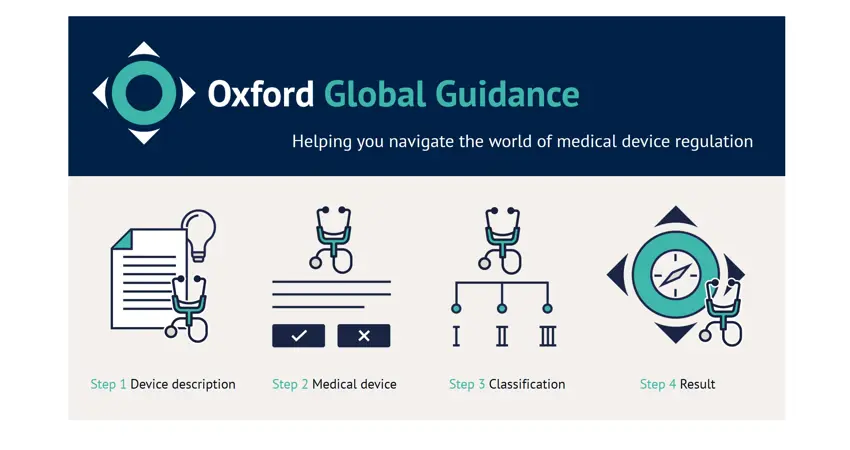05 Jun 2020
Free Global Guidance tool launched by Oxford researchers to help medical device innovators
Tool has been used over 1,500 times including for Covid-19 related innovations

The Oxford Global Guidance tool is aimed at people developing medical devices and takes around 20 minutes to complete a series of Yes/No questions
In an ever changing regulatory environment, getting a medical device to market can prove challenging. This is a barrier that researchers and academics at the Oxford Natural Interaction Lab (NIL), based in the Department of Engineering Science, decided to address by developing an easy to use and free online tool, Oxford Global Guidance, for startups and innovators.
The tool is aimed expressly at people developing medical devices and takes around 20 minutes to complete a series of Yes/No questions, finishing with users being given an anticipated classification for their product according to the EU Medical Device Regulations and in vitro diagnostic medical device regulations. This classification is intended to support subsequent conversations with regulatory experts, notifying bodies or relevant authorities.
“We want to increase the chance for a startup to succeed and thereby improve the chance of the device reaching the patient and making a positive impact on patients’ lives.”
The team accelerated their work on Oxford Global Guidance in recent months to allow for an early launch, expressly to support innovators developing solutions in response to COVID-19. The tool has been used more than 1500 times so far, demonstrating a clear need for support in medical device classification. The University of Oxford’s OxVent team were among those who used the tool to classify their ventilation device, rapidly developed in response to the UK government’s Ventilator Challenge. Rita Hendricusdottir, Program Manager for the NIL, hopes that word will spread to others working on projects relating to the pandemic. “I’m sure there are companies working on COVID-19 solutions out there who would benefit from Oxford Global Guidance”, she says.
Engineering Science Associate Professor Jeroen Bergmann heads up the Natural Interaction Lab. His research focuses on developing new preventative and assistive technologies. His interest in biomedical entrepreneurship and experience in developing laboratory prototypes and taking them through clinical validation have helped to inform the development of the guidance tool, along with input from colleagues and collaborators.
The team are already planning how to expand and develop the tool further to include the next stage in the medical device regulations, in order to support innovators in complying with the regulations. The intention is for the tool to continue to be freely available to medical device innovators, future funding streams permitting.
“Our goal is to support innovators in their regulatory journey, from design to development to placing the product on the market” says Rita Hendricusdottir. “We want to increase the chance for a startup to succeed and thereby improve the chance of the device reaching the patient and making a positive impact on patients’ lives.”




